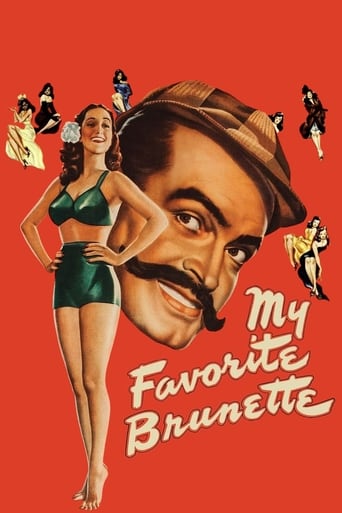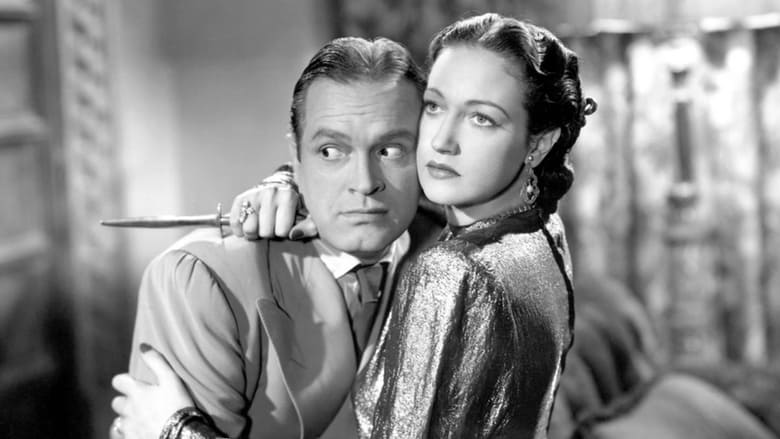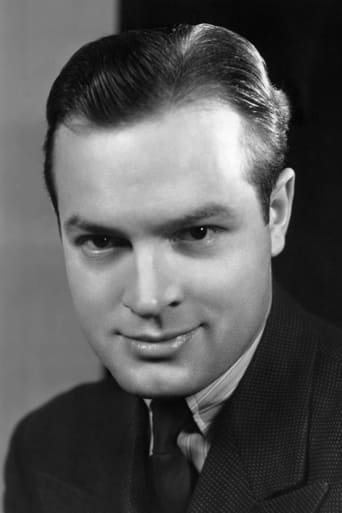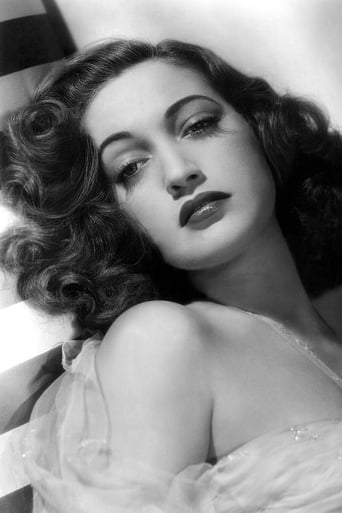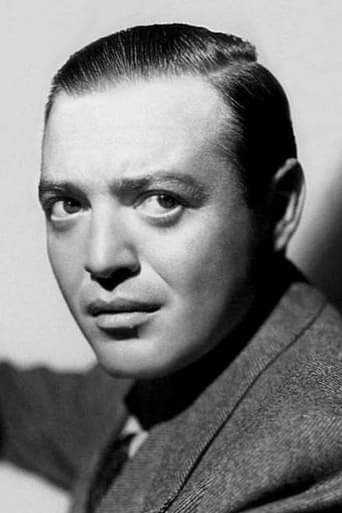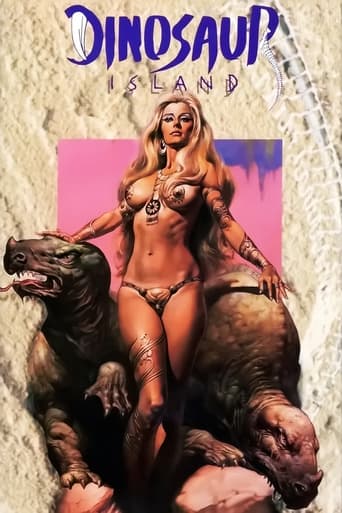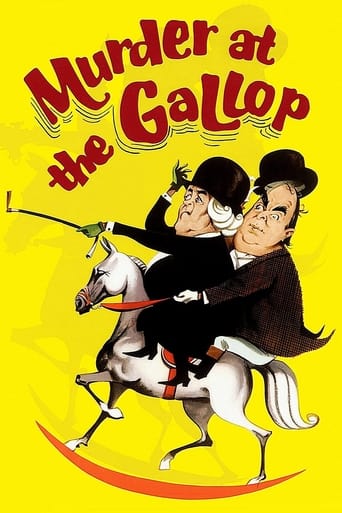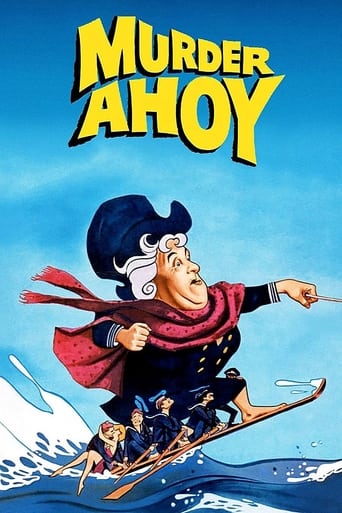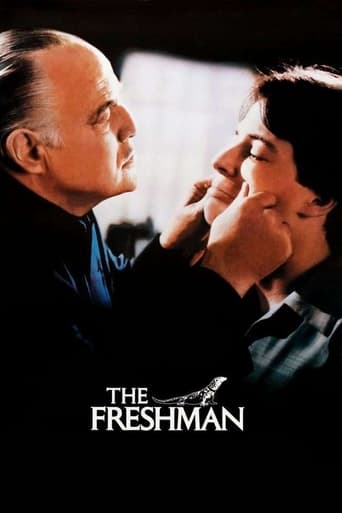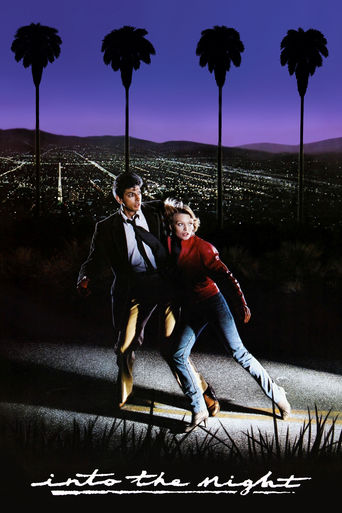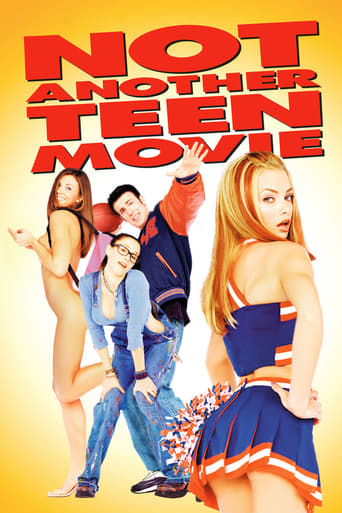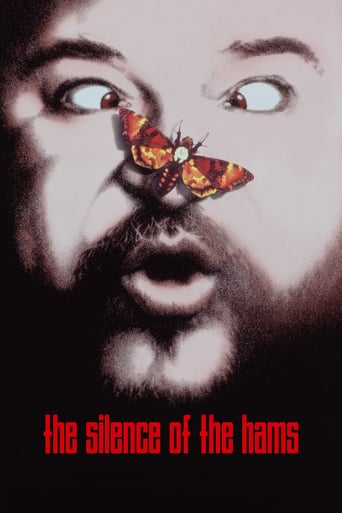My Favorite Brunette (1947)
Ronnie Jackson is a lowly baby photographer who secretly fantasizes about being a private detective. When a lovely baroness actually mistakes him for one and asks him to help locate her missing husband, Baron Montay, Ronnie finds himself agreeing. Several days later he is on death row whiling away the hours until his execution by recounting to a group of reporters the bizarre tale of how he ended up there.
Watch Trailer
Cast
Similar titles

Reviews
When a movie has you begging for it to end not even half way through it's pure crap. We've all seen this movie and this characters millions of times, nothing new in it. Don't waste your time.
A terrific literary drama and character piece that shows how the process of creating art can be seen differently by those doing it and those looking at it from the outside.
what a terribly boring film. I'm sorry but this is absolutely not deserving of best picture and will be forgotten quickly. Entertaining and engaging cinema? No. Nothing performances with flat faces and mistaking silence for subtlety.
This is one of the best movies I’ve seen in a very long time. You have to go and see this on the big screen.
As this story opens Ronnie Jackson is in San Quentin prison awaiting his execution; unusually he has been allowed to give an interview to the media. During this interview he tells how he came to be on death row. We learn that Jackson earned a living photographing babies but wanted to become a private eye like Sam McCloud who is in the neighbouring office. Then, while McCloud is away a woman, Baroness Carlotta Montay, comes to the office and mistakes Jackson for the detective; he sees this as an opportunity to show that he can do the job. She is nervous and tells him that her wheelchair bound husband has been kidnapped. Unwilling to say more there she gives Jackson a coded map and her address. When he gets to the address she tells him the missing man is actually her uncle. Jackson is soon in over his head as those responsible for Baron Montay's disappearance try to recover the map and ultimately set Jackson up for the murder that put him in jail.As a fan of film noir I rather enjoyed this gentle send up of the genre. It plays with the expected tropes in a fun manner; we have a slightly ambiguous femme fatale; some dastardly villains and some nice twists. Bob Hope is rather good in the role of Jackson, occasionally he hams it up a little too much but for the most part he is solid and is frequently genuinely funny. Dorothy Lamour is good as Carlotta and Peter Lorre is a lot of fun as Kismet, a rather slimy member of the criminal gang. The central story is good and apart from the added gags most of it could have come from a more traditional film noir. Overall I'd certainly recommend this; it is still surprisingly fresh after seventy years.
In general, I'm not into film noires. However, this one was wackier than the ones I've seen, understanding that it's supposed to be a spoof of the genre. This is one of a triumvirate of films costarring Bob Hope, titled "My Favorite......", released between 1942 and 1951. I haven't seen the other two yet: "My Favorite Blond" and "My Favorite Spy", each with a different cute costar: Dorothy Lamour in this one. A highly contrived plot, basically about the disposition of the mineral rights for a piece of land owned by a wheelchair-bound uncle of Dorothy's character, A central part of the screenplay involves fighting over the possession of a piece of paper with a map of the location of the minerals, with a code not attached to the map, which only Dorothy's uncle and a geologist know. The bad guys have kidnapped said uncle, hoping to get the code from him. But Hope has hidden the map, given to him by Dorothy for safe keeping. Dorothy has hired Hope as a detective, believing him to be the professional detective whose office is next to Hope's photography lab. Dorothy says she's afraid the kidnappers will kill her uncle if she goes to the police about the kidnapping, so why she wants a private eye.(Why would the kidnappers want to kill Dorothy's uncle, if only he knows an essential bit of information?)I wish they had named either Montay or Montague something else, since they include 3 of the main characters, and I sometimes got mixed up who they were talking about.The finale made little sense to me. Hope's character is on death row as the supposed murderer of geologist James Collins. Just why he or Peter Lorre's character(the real murderer) would want Collins dead isn't clear to me. Collins drew the map everyone wants, and devised the code for the map. Lorre destroyed the recording of his admission of guilt. All we have is the negative of Hope's photo showing that the man he was told is Dorothy's uncle must be an imposter. How does this prove Hope's innocence of the murder?? As a geology enthusiast, I checked out the said relationship between a cryolite deposit and supposed included uranium. I found no indication that cryolite deposits contain significant uranium. Significant cryolite deposits are very rare, and it is important as a flux in converting bauxite into metallic aluminum. Thus, the cryolite itself might be more valuable than uranium, which is found in various places around the world.
I caught this on Turner Classic Movies over the summer--my first Bob Hope picture. The plot concerns a baby photographer, Ronnie Jackson, whose office is just down the hall from a Sam Spade-ish private eye, Sam McCloud (played by the mostly absent Alan Ladd). When McCloud is forced to leave for a while, Jackson does the neighborly thing and looks after his office, thereafter getting mixed up in a murderous mystery where danger lurks around every corner and nothing is as it seems.My Favorite Brunette is no comic masterpiece, but it's fun light viewing. The solid script and direction are bolstered by a good cast. Bob Hope is Bob Hoping it for all he's worth, Dorothy Lamour is suitably sexy as the damsel in distress, and Peter Lorre is both menacing and hilarious as he sends up his screen persona. Lon Chaney, Jr. is also quite enjoyable as a hulking simpleton (obviously a take-off on his turn as Lennie in the 1939 adaptation Of Mice and Men) who's tricked into working for the bad guys.The mystery at the heart of the plot was satisfying--for me, anyway--working in enough zany twists and turns to stay surprising along the way. Ultimately, though, it's no more important than as the framework from which to hang Hope's mugging and one-liners. The film moves at a fast enough pace that, if one joke fails to take off, another comes along directly behind it. There's no time to get bored, and Hope's comedic style, while perhaps bland to some, is amiable enough for all ages to enjoy. This one's worth checking out.
On the streets of San Francisco, a mysterious woman named Carlotta appears out of the blue asking a man to help her. He's not really a private detective, but he's so swept off his feet he acts the part anyway. Then her story unravels. He suspects her sanity, not realizing he's only one step behind her en route to the sanitarium."Nutty as a fruitcake, but with all that beautiful frosting!" That's not James Stewart talking about Kim Novak, but rather Bob Hope on the subject of Dorothy Lamour, his co-star in this farcical takeoff of the film noir, made more than ten years before Hitchcock's "Vertigo". Maybe the Master should have called it "Deja Vu" instead.That's not entirely fair. "Vertigo" is a classic on many levels, whereas "My Favorite Brunette" is an amiable timekiller with Hope solid if not sharp, making the best of an uneven set of wisecracks and a wrong-man story even weaker than the one Carlotta spins at the outset. Still, Peter Lorre is on hand to lend the film some Hitchcockian gravitas as one of the key hoods, and the opening set up showing Hope at San Quentin telling his tale to reporters as he awaits the gas chamber gets things off right.Hope is Ronnie Jackson, a baby photographer whose office is next door to a detective he idolizes. The detective chooses to leave Ronnie alone in his office just as Carlotta walks in, to tell of a man who is either her husband, her uncle, or neither, hand him a ring and a map, and lead him on a chase involving keyhole cameras and invisible golf balls which pits him against Lorre ("Ol' Shortenin' Bread" Ronnie calls him), slick southerner Charles Dingle ("Mint Julep") and muscle man Lon Chaney Jr. ("Boulder Dam with legs").Seeing Hope's mock-tough-guy persona go through the paces of a Raymond Chandler-style potboiler is fun. He's all show but never learns, to the point that when he jumps a middle-aged woman in one scene, the joke isn't him losing so much as him thinking he could win.In the beginning we see him on Death Row asking the warden about a reprieve from the governor: "No word, huh? Well, I'll know who to vote for next time." Every time he smokes a cigarette, he tries to sneer at the guard, only he ends up nearly coughing instead.Director Elliott Nugent keeps the story moving, which helps with the holes, but the film-noir mood he establishes at the opening quickly dissipates into a shooting gallery for Hope's one-liners. Edmund Belion and Jack Rose, the screenwriters, miss a good opportunity to use the story as more of a send-up. Alas, the mystery is played too much on the level, and except for some reaction shots from Lorre, we never see the villains as part of the comedy.But it's Hope, it's the 1940s, which means you are in for a good time. Plus one thing "Vertigo" didn't have, a terrific last line. Watch it once, and it will be the biggest smile you take away from this underbaked charmer.
